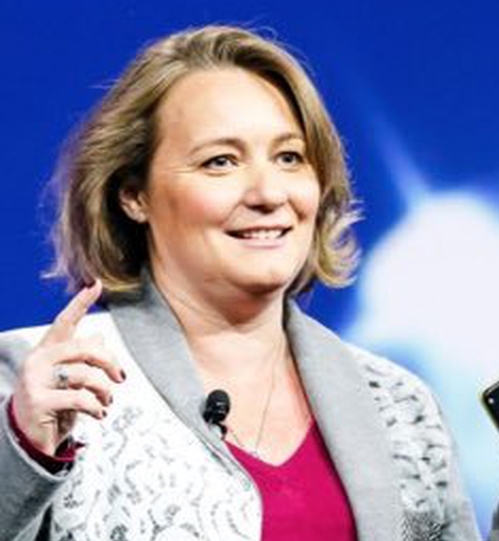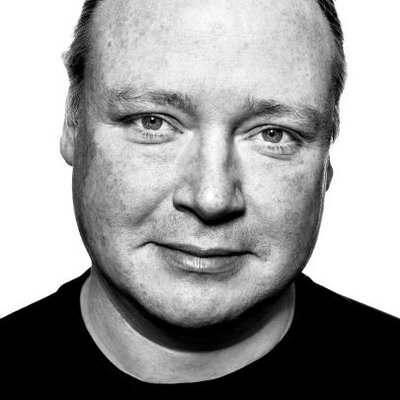As the global elite descended into Davos for the World Economic Forum in 1,500 private jets to eat $43 hot dogs and discuss pressing issues like climate change and income inequality, blockchain was once again on the agenda—but not in the same way it has been in previous years.
BREAKER reached out to Tomicah Tillemann, cofounder of Blockchain Trust Accelerator, Angel Versetti, CEO of Ambrosus, Brian Behlendorf, executive director of Hyperledger, and Leanne Kemp, CEO of Everledger, to report back on the buzz on the ground in Davos. Responses have been edited and condensed.
What are you hearing about blockchain and cryptocurrency this year at Davos?
Tomicah Tillemann: New technologies are usually popularized before they are professionalized. Last year, blockchain was popularized. This year, it’s being professionalized. The hubris is gone. What’s left is real.
Angel Versetti: In contrast to the 2018 World Economic Forum (WEF), the excitement around blockchain and cryptocurrencies has definitely languished. The crypto winter has…left a bad taste in people’s mouths. While those representing the blockchain industry remain sanguine on the revolutionary powers of the technology, so too endures the outspoken skepticism of the top financiers who seemingly want to bear witness to its demise.

Brian Behlendorf: The word “blockchain” is just as popular this year as ever, though compared to years past, it’s much less frequently referring to cryptocurrencies, and much more frequently to enterprise applications. Once past the “b word,” you hear people follow up with “distributed ledgers and smart contracts” or simply “DLT.” There is huge interest in supply chain traceability and transparency as a means to make progress on a number of Sustainable Development Goals, from fighting corruption to food safety.
Leanne Kemp: It is heartening to engage in conversations about the meaningful applications of blockchain, having progressed beyond the noise of skeptics questioning the technology. Sustainability and the circular economy has been a substantive theme throughout the sessions this week.
What big, global problems do you think blockchain or cryptocurrency could solve?
Tillemann: The biggest challenge facing the world today is the collapse of trust in institutions. We’re seeing governments harness blockchain to strengthen accountability, security, and efficiency—and some of the world’s most respected foundations investing to accelerate that work.
Versetti: Bureaucracy and reliance on flawed political systems have proved inhibitive and inefficient in the management and control of global supply chains. Much discussion revolved around the integration of blockchain integration with other progressive technologies such as Internet of Things (IoT) and Artificial Intelligence (AI).
Widespread political unrest exposes the outdated food and pharmaceutical monitoring environment that is ripe for disruption. With multi-trillion dollar industries dependent upon paper-based record keeping, as well as fragmented or “siloed” data management practices, it comes as no surprise that contaminated food products or recalls of life-essential drugs become dangerous possibilities, especially when government oversight is politically inhibited. More transparency, better accountability, and easier management of health safety information is clearly a necessity. As digitization within the food and pharmaceutical supply chains becomes more widespread, enterprises, government officials, and industry experts can all be better equipped to manage the bureaucratic farces we are currently subject to. Consumers, meanwhile, can genuinely trust the quality of their food and medicine.
Behlendorf: The most prominent way in which folks in Davos organize the “big, global problems” is in the form of the Sustainable Development Goals, or SDGs. They represent over 250 different goals and metrics organized into 17 categories. DLT cannot alone solve any of them; but there are some that it can have an outsized impact upon, like goal 16.9 for verifiable identities for all individuals; and others that it can have a substantial impact on, such as human trafficking, carbon emissions, and food safety. A verifiable and trustworthy distributed accounting system can also be applied towards nearly any goal to help improve the confidence in the measurement of progress against that goal.
Kemp: Beyond commercial applications, blockchain can be used as a reliable tool in the humanitarian sector, particularly to give identity to the world’s poorest and most vulnerable—particularly women and girls. Amongst the excitement of technological advances, global government and business leaders must remain vigilant to remember the human element and harness opportunities to advance those who are often without a voice.
Which panel/speaker are you most excited about this year and why?
Tillemann: Every panel at Blockchain Central has been spectacular. I can’t pick. It’s like asking me to pick a favorite child.
Versetti: I personally enjoyed much of the discussion led by Bill Gates on the work of the foundation to bring medicine and improved living standards to people in developing countries, in particular using innovative healthcare technologies to improve the livelihoods of millions of people. Gates talked a lot about the increasing uncertainty around the world and how it’s becoming more challenging to raise funding for philanthropic initiatives. He encouraging different private organizations to think about the ways they could contribute to improving people’s lives and not only leave that responsibility to the public sector.
Behlendorf: The most impressive panel was “Slave-free seafood: On combating slavery and abuses in the seafood industry.” It was fascinating to hear from Michelle Bachelet [United Nations High Commissioner for Human Rights] on what they’d done in Chile, and how linked the fight against slave labor in the fishing industry is to preventing overfishing and depletion. DLT continues to be brought up as one of a set of technologies that can help both.
Kemp: Sir David Attenborough, Al Gore, and Dr. Jane Goodall. They, along with Dr. Catherine Hamlin (who pioneered the treatment of fistula and has twice been nominated for the Nobel Peace Prize), are outstanding, humble, and brilliant moral beacons from which everyone can draw inspiration.

The Washington Post says Davos is “in decline”; is the vibe of Davos different than in past years?
Versetti: Considering the various political crises looming globally and noticeable lack of high profile leaders in attendance, the atmosphere at Davos was much more subdued this year. The absence of heads of state from Russia, China, America, France, the U.K., and India seemed to emphasize the overwhelming sense of worry and uncertainty about the future global economy and political landscape. However, whether Davos is in decline remains to be seen.
Behlendorf: It’s too hard to sum up so neatly. Certainly much of the world feels like it is in decline, and often the tone in Davos can reflect the national or global mood. But from the sessions I attended, it still seemed like speakers and audience were as determined as ever to take on these issues despite what can feel like ever-growing challenges.
President Trump canceled the U.S. delegation’s trip to Davos due to the government shutdown. Was that the right move and why?
Versetti: With the U.S. government shutdown at a staunch impasse, it would be reprehensible to have attended. While his actions are contentious at best, the delay to proceedings and debate would dramatically worsen the already dire situation. Taking the example of the effect on the Food and Drug Administration (FDA) alone, the pause on vital government operations could have life-threatening consequences. In the food industry, the shutdown means that routine inspections of food processing facilities have come to a standstill. The problems at hand are symptomatic of much larger and deeper inefficiencies in how products are tracked and data is managed.
Behlendorf: I won’t ever claim to be able to speak for him.
Kemp: Commenting on the domestic politics of the U.S. is best left to those more directly involved.
Is global economic leadership something we should want?
Versetti: One can always assume that when there is leadership at a global level it could also mean abuse and control at the global level. At the same time, the challenges we are facing today are so complex that they require coordinated action. Obviously, it is important for leadership to be inclusive and not just create additional barriers for people: this is where technologies like blockchain can be powerful to increase participation of various, previously marginalized groups of people.
Behlendorf: Without coordinated efforts between governments of the world, civil society, nonprofits, and for-profit organizations, everyone’s long term interests are threatened in a nearly countless parade of ways (but also some really big ones). Whether they all want to work together or not, it’s pretty clear that they need to.
Kemp: Leadership is always wanted. Genuine leadership that reflects the time-honored virtues of respect, integrity, decency, valor, honor, excellence, compassion, and intelligent mindfulness. If we wish for future generations to remain engaged in working toward a more prosperous future, every person—and particularly those in leadership roles—has a fundamental responsibility to act in accordance with those and other admirable qualities.
Photos courtesy Twitter.